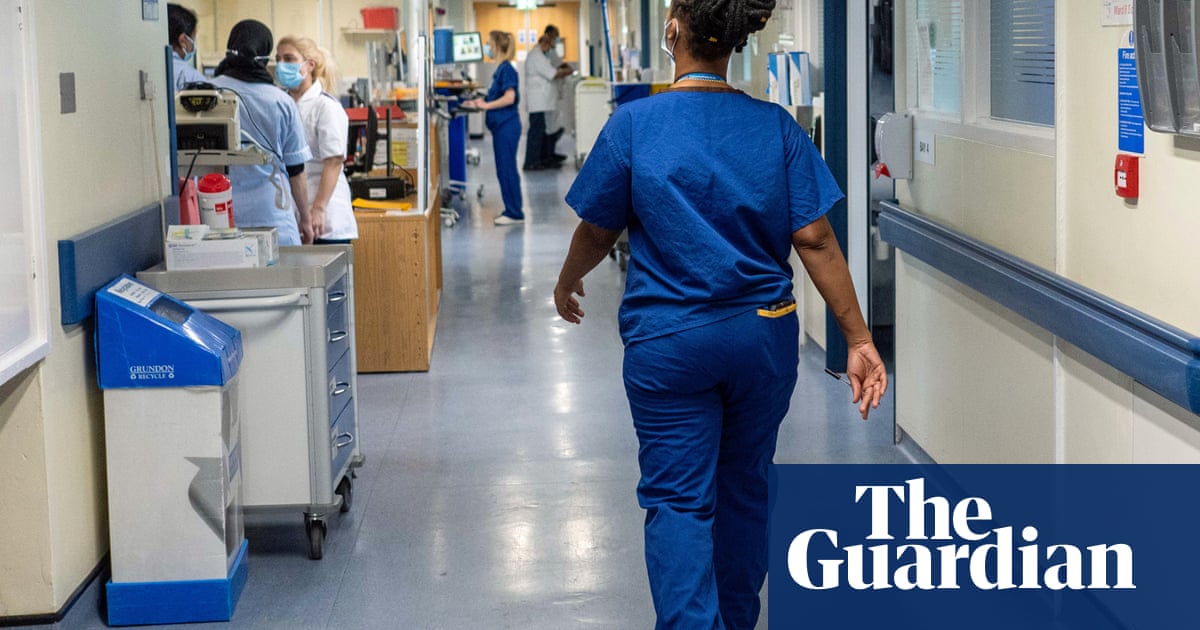Nurses deserve a 25% pay rise and may go on strike again unless ministers dramatically improve their “completely unacceptable” 2.8% offer toNHSstaff, the profession’s leader has said.
Prof Nicola Ranger, the general secretary of the Royal College ofNursing, said nurses wanted full restoration of lost earnings and could “bare our teeth” in pursuit of that goal.
Her remarks, in an interview with the Guardian, heighten the risk of a new wave of strikes in the months ahead by key staff unhappy with what they are being offered disrupting NHS care. The RCN’s annual congress opens on Monday in Liverpool.
Resident doctors in England – formerly known as junior doctors – have alreadylaunched a ballotfor a potential fresh round of strikes, after the 11 rounds they held in 2023 and 2024 when they were seeking a 35% rise. Their action won them a22% salary upliftover the two years 2023-24 and 24-25.
The British Medical Association has warned Wes Streeting, the health secretary, that they will stage further walkouts for up to six months unless they get a 10% increase for 2025-26, which he says is unaffordable. They want the value of their pay restored to 2008 levels by 2027 and have said their “successful action over previous years” shows that strikes lead to better pay deals.
Ranger cited the junior doctors’ strikes and outlined a similar demand to them – restoration of the value of nurses’ incomes, which have fallen in real terms since 2010 due to inflation and low pay rises – in explaining why the 518,000 nurses working in the NHS across the UK deserve a 25% salary boost.
“Nursing pay since 2010 in real terms has reduced by 25%. The junior doctors were very clear about pay restoration. We still believe in that as well. It’s where we start. It’s our starting point,” she said, for this year’s negotiations over what percentage rise nurses should get this year.
“We want to start bringing nursing [pay] back to where it needs to be. The junior doctors, they went on strike 11 times. They were very successful in what they did.
“If every nurse in every setting was to put down their tools even for one hour in every setting, the impact would be catastrophic. So if we’re essential to patients in every setting, start to value us, start to recognise our worth and start to pay us accordingly. Nursing is undervalued, misunderstood and underpaid.”
Asked what the RCN would do if the government does not award what it regards as a fair amount, Ranger replied: “We will come to a point where we will start to have to bare our teeth and start looking at what we do.” But, she added: “They don’t want strike action; nor do we.”
NHS leaders said Ranger’s warning shot was unhelpful tosolving the issue of NHS pay, especially given the financial problems of the service in England.
Danny Mortimer, the chief executive of NHS Employers, who leads the NHS’s side of pay negotiations, said: “It is imperative that the government takes a considered view on what to do next. It is also imperative that all trade unions, including the RCN, seek out dialogue rather than confrontation as a way to resolve their long-term aspirations for their members.
“NHS leaders want nurses and all their staff to receive sustainable long-term investment in their pay, reflecting the crucial roles they deliver for society and the nation. Such awards need, though, to be affordable.”
He highlighted the round of budget cuts that England’s 215 NHS trusts are having to make to comply with a brutal“reset”ordered by Sir Jim Mackey, NHS England’s new chief executive.
Nurses in England went on strike on eight days between December 2022 and May 2023. They later received a one-off payment of £1,655-£3,789 for 2022-23 and a 5% pay rise for 2023-24.
Given the big fall in numbers applying to be nurses and high numbers quitting early, Ranger said the government’s plans to improve the NHS would fail unless Streeting gives nurses a significant pay uplift to help tackle the twin problems of recruitment and retention.
Ministers in Scotland have offered NHS nurses, midwives and other staff there an8% riseover the next two years – 4.25% this year and 3.75% in 2026-27.
The NHS pay review body (PRB) covering the 1.38 million NHS staff on Agenda for Change terms and conditions UK-wide has advised ministers to give them close to 3%, slightly higher than the 2.8% the government has proposed. Doctors’ and dentists’ pay is decided by a separate pay advisory body. Ministers are considering how to respond to the PRB’s recommendation.
In a further sign of tension over NHS pay, the union Unison, which represents tens of thousands of staff, is consulting members in England and Wales over their readiness to strike if the 2025-26 pay award “fails to keep up with rising living costs”.
A government spokesperson said:“This government inherited a broken NHS with an overworked, undervalued and demoralised workforce. We hugely value the work of talented nurses and midwives, and through our plan for change we are rebuilding the NHS for the benefit of patients and staff, and ensuring nursing remains an attractive career choice.
“One of the first acts of this government was to award nurses an above-inflation pay rise for the first time in years, because we recognise that their pay has been hit over previous years. We are carefully considering the recommendations from the NHS pay review body and will update as soon as possible.”
